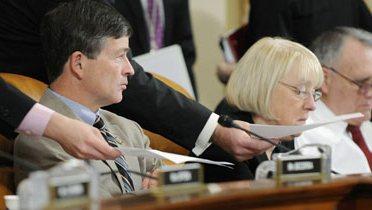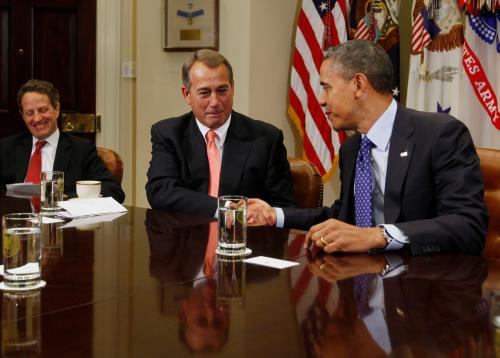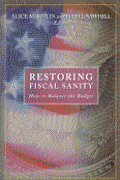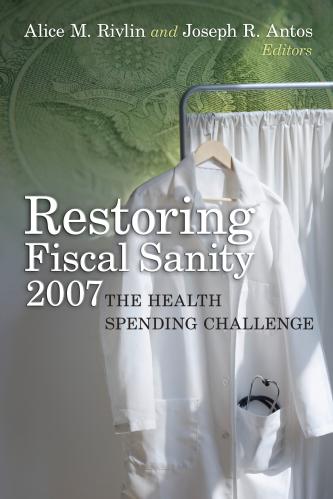The election is over. That signals the temporary end of the season’s political warfare and the other indignities the campaigns have laid upon us. The country, and the facts, have been spun and misdirected enough. It’s time to get to work on repairs to the nation’s battered fiscal condition.
The people have spoken. Unsurprisingly, they have given us another sharply divided government much like the last one. The polarized electorate has produced another polarized Congress. Both parties, both houses and the President can claim, and have claimed, mandates.
A Fractured Government
Our policymakers are fresh off the nastiest campaign trail in memory. They are now expected to transform themselves, suddenly and magically, from warriors into statesmen. Their core constituencies are urging them to make neither peace nor comprise, but rather to continue the war. As usual, the election did not solve our political problems.
The outgoing government has the task of steering the Ship of State through the Lame Duck Session. Despite a crew of disagreeing helmsmen, each claiming the tiller, a new fiscal course must be charted before the year’s end to avoid the looming “fiscal cliff.”
The old government has six weeks on the calendar, much less in legislative days, to settle fiscal policy questions that have defied agreement for four years. If that miracle can be achieved, the incoming government, with the very same disagreeing helmsmen, will have to find agreement in 2013 on the details of both a long and short term fiscal plan to accelerate the recovery and stabilize the debt ratio.
Time to Face the Fiscal Cliff
The task is daunting. In the lame duck, the fiscal cliff — a combination of an excessive sequester and monstrous tax increases — must be avoided before the end of the year. Thereafter, agreement must be found on a pro-growth fiscal plan for the next 10 years that stabilizes the debt at around 60% of GDP.
To succeed, any plan must first be bipartisan. It also must include every element of the budget. Republicans, who are highly tax-averse, and hawkish on national security, will have to concede a little in both areas. Democrats, pledged to defend unaffordable entitlements forever, will have to concede a little, too.
Some parts of such a plan may look relatively simple, but, politically, they are murderous. The FY 2013 budget needs to be extended to the end of year. The sequester and tax increases must be modified so as not to endanger national security, nor to jolt the economy. But, a substantial down payment on future deficit reduction should include major elements of the sequester. And the plan has to look real to avoid roiling the markets.
The debt ceiling will have to be extended in January. It’s a politically explosive issue, but the country cannot stand another threat of bankruptcy like last year.
The more complicated parts of the plan, which must be negotiated next year, are the nature and timing of the entitlement changes, and agreement on tax reform. Both parties want to protect people over 55. That pushes some deficit-reducing entitlement changes far into the future, which of course puts additional pressure on already reduced discretionary spending accounts.
Toward a Long-Term Solution
Tax reform is both difficult and time consuming. Our last effort, the 1986 Act, required several years. In 2013, tax reform, both corporate and individual, must be completed in less than a year. Tax preferences will have to be sacrificed for more growth and for deficit reduction. Like entitlements recipients, the beneficiaries of tax preferences will fight to the death to preserve each one. The AMT and tax “extenders” will complicate the task.
Fortunately, some tax reform work has already been done. The 1986 Act, while flawed, furnishes framework guidance. Several better models can be found in the 2005 Report of the Presidents’ Advisory Panel on Tax Reform. Other luminaries, like Martin Feldstein, have provided ideas to avoid attacking preferences seriatim, but instead taking them all on at once. And the tax committees of both houses have done good preparation work, including necessary hearings.
All of these complicated and politicized decisions would be difficult for a consolidated government. For our newly-elected, but still divided, government, the tasks are Herculean. A look at the track record of recent years is not reassuring. Neither is the fact that the cast of characters has hardly changed.
Nevertheless, sometimes seemingly impossible challenges just have to be met. Our political leaders will simply have to rise above past animosities as they meet, negotiate and compromise. The Republic’s existence may not be threatened, but it’s well-being surely is.
The Brookings Institution is committed to quality, independence, and impact.
We are supported by a diverse array of funders. In line with our values and policies, each Brookings publication represents the sole views of its author(s).









Commentary
Op-edThe Election is Over, Now the Real Battle Begins
November 12, 2012